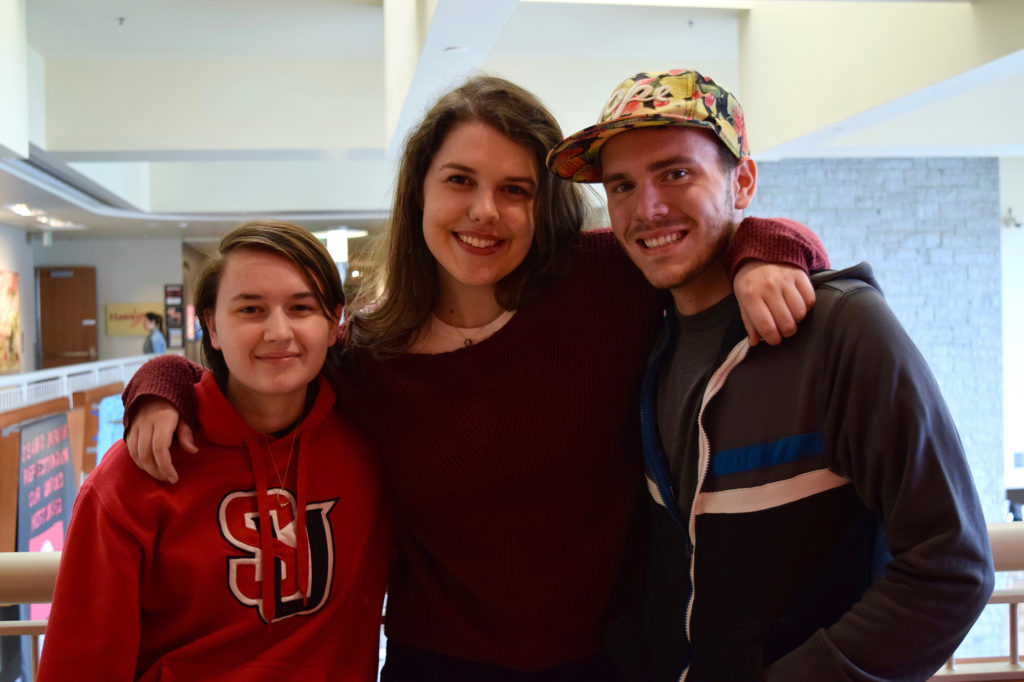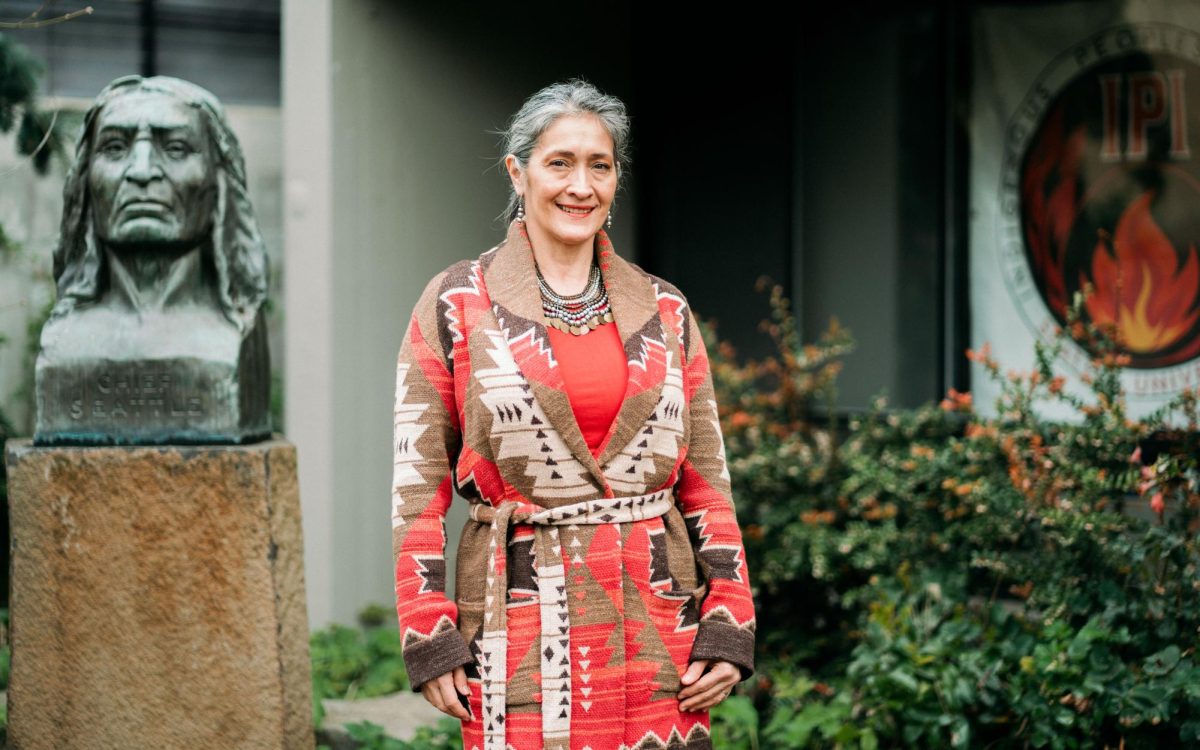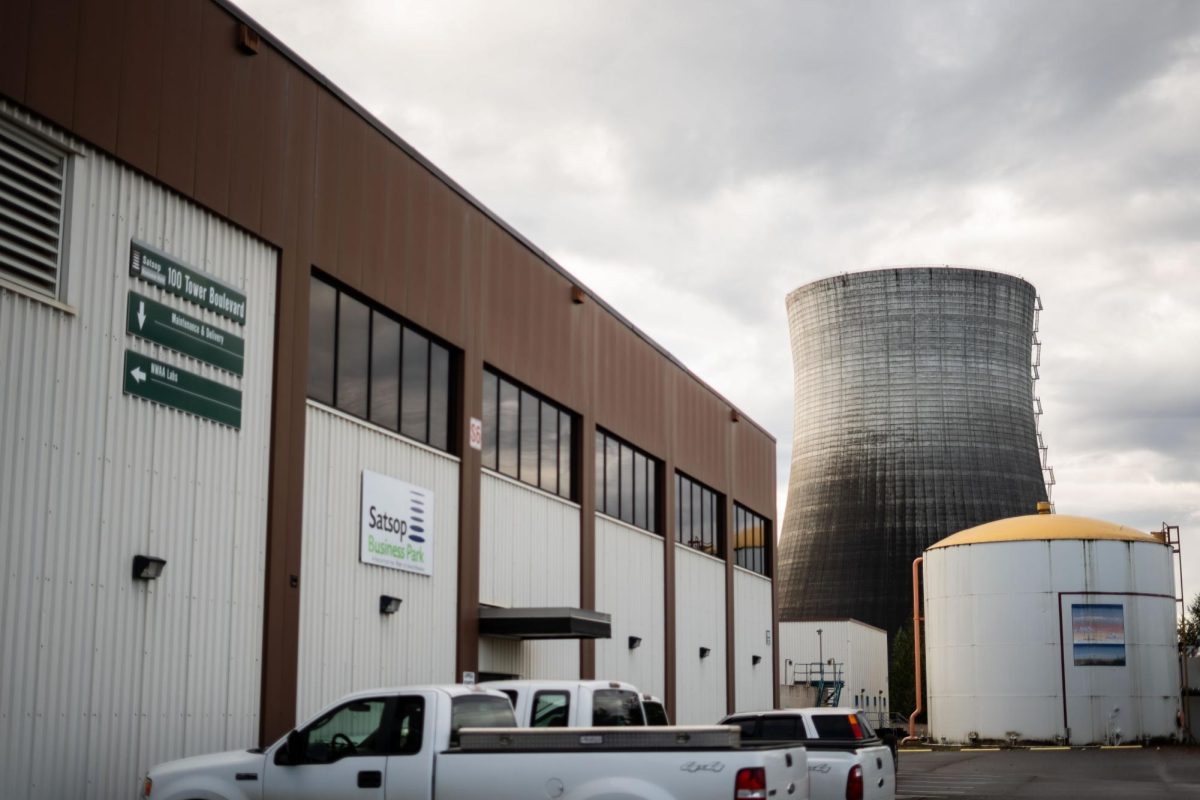For many students, Saturday and Sundays are a time to catch up on homework and sleep. But for a team of Seattle University students, the weekend is designated to intense competitions of logic and reasoning. The Seattle U Debate Team achieved the status of top 16 in the nation this year at the National Debate Tournament in Denver, Colo.

SU’s Debate Union members, Brenna Murphy, Aine Foran, and Chris Wysocki, participate on one the most successful teams in the Pacific Northwest.
“We were successful in growing our team to 18 members this year who were going to tournaments and being really competitive. We won four tournaments in the Pacific Northwest, and we broke a team at every single tournament. We were the most competitively successful team in the Pacific Northwest this year, last year and the year before that,” said Seattle U senior debater and communication studies major Chris Wysocki.
The Debate Team competes at tournaments in a style of debate called British Parliamentary debate, which is the standard format at universities worldwide. In British Parliamentary, two teams compete in support of a motion and two teams compete in opposition to a motion, with the goal of being ranked first in the round.
The topics of debate vary greatly, from philosophical to political. Each debater is given 15 minutes to prepare a speech that can be up to seven minutes in length.
“When you have defend a side that it not necessarily intuitive to you and not necessarily something that you believe personally, those topics end up being the most valuable because you have to think through those topics very carefully,” said Debate Team President and senior political science major Aine Foran.
Instead of just dismissing them as incorrect, it enables you to strengthen your own opinions and come to better conclusions about both sides of really important issues, which makes you just a better global citizen.”
The composition of the team next year will shift, due to the large proportion of seniors graduating from the team. Additionally, the Seattle U Debate Team will be getting a faculty coach, and was previously under the direction of a student coach.
“We’re going to basically be rebuilding the team, almost from scratch. So, it’ll be interesting to see with the new coach how that comes to fruition. Hopefully we’ll continue to be competitive,” said Seattle U first- year mechanical engineering major Brenna Murphy.
Murphy, Foran and Wysocki expressed gratitude for the sense of community that they have found through the Debate Team. While up to five quarters of debate can be used for credit toward a communication major or minor, Wysocki said the experience outweighs that of any other class.
“It’s probably the most time consuming credit you’re going to get,” Wysocki said. “But it’s also the most enjoyable because you’re doing something, hopefully, that you care about and you’re engaging in what the debate is and how to, not only speak publicly, but speak with intention and with knowledge about what you’re going to be saying.”
The Seattle U Debate Team travels to tournaments in Washington, Oregon and Canada regularly in addition to attending big-name national tournaments such as the Pan-American tournament and the National Debate Tournament. Seattle U also hosts its own tournament every December.
2016-2017 Debate team President Aine Foran reached quarterfinals at the National Debate Tournament this year, surpassing teams from Ivy League schools like Harvard and Yale.
“Debate for me was helpful in a couple of ways, Foran said. “First of all, it was really helpful to be able to learn the skill of thinking on my feet and being able to articulate things in a very precise way with a pretty limited timeframe. And that’s something that ends up being helpful in the real world with things like job interviews just being able to have those types of real world skills really solid.”
During the season, the team typically practices on Monday and Wednesday evenings in Campion basement. They run practice rounds and prepare cases for tournaments. Wysocki said that while peer coaching is helpful, going to tournaments stimulates the most growth.
“It’s important to note for new members that there’s not really any pressure to do really, really well,” Murphy said. “You’re not expected to break at every single tournament, especially if it’s your first time. You won’t have to go in like ‘oh my god I have to do really well’, you just have to go in and be like ‘I’m learning this new skill, it’s going to take time’, and take it as it comes rather than expecting to be great your first time.”
Haley may be reached at
[email protected]












Jim Hanson
Oct 16, 2018 at 11:05 pm
2018 update: we now meet tuesdays and thursdays 6:15 to 8:30pm in the 1103 (comm dept) building. : )